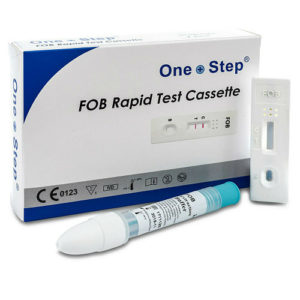A major new study has found evidence that increasing folate intake, either through eating more leafy green vegetables or taking supplements, could reduce an individual’s risk of developing bowel cancer by up to 7%.
Folate is a form of vitamin B9 found naturally in foods like spinach, broccoli, cabbage, lentils, chickpeas and citrus fruits. It helps the body produce red blood cells and is especially important for pregnant women.
The research, published in the American Journal of Clinical Nutrition, was led by Dr Konstantinos Tsilidis from Imperial College London’s School of Public Health. His team analysed data on over 70,000 people from 51 different studies — making it the largest analysis of its kind to date.
By exploring the interaction between people’s genes, folate intake and bowel cancer, they found a significant link between higher dietary folate levels and reduced colorectal cancer risk across all areas of the bowel.
In particular, they discovered that for every extra 260 mcg of dietary folate consumed — equivalent to approximately 65% of the daily 400 mcg recommended amount — the odds of developing bowel cancer fell by 7%.
Folate from supplements rather than food may also decrease cancer risk, but more research is needed to confirm the relevant genetic pathways involved.
Bowel cancer is currently the fourth most common form of cancer in the UK. Nearly 45,000 Britons are diagnosed every year, with over 120 new cases every day. It is estimated that 1 in 18 women and 1 in 15 men will get bowel cancer during their lifetime.
The study authors state that alongside stopping smoking and staying active, eating a healthy plant-based diet can significantly reduce individual risk.
Dr Tsilidis commented: “When it comes to bowel cancer, there are a number of things people can do to reduce their risk, including eating a varied diet — rich in wholegrains, vegetables, fruit and beans — which supports the findings from this study.”
Leafy greens like spinach, broccoli and cabbage are excellent sources of natural folate. Pulses, citrus fruits and sunflower seeds also contain plenty. Fortified cereals and bread provide folate too.
The researchers recommend consuming folate-rich foods regularly as part of a balanced diet. Interest in plant-based eating and ‘flexitarian’ diets has grown rapidly, with more tasty meat-free recipes available than ever.
While folate is found in various plant foods naturally, folic acid supplements can help those who struggle to eat enough greens regularly. Folic acid is crucial for pregnant women to support healthy foetal development.
In some countries like the US and Canada, folic acid is added to flour to ensure adequate intake across the population. Calls have previously been made for fortification to be introduced in the UK too.
The study authors conclude that alongside not smoking, staying active and limiting red and processed meat, getting enough folate from vegetables, pulses, seeds and whole grains every day may help decrease bowel cancer risk by up to 7%.
Making Folate-Rich Foods Delicious
Let’s face it – the words “eat more leafy greens” might not get your taste buds excited. But here’s the good news: boosting your folate intake doesn’t mean endless bowls of bland salads. Try tossing baby spinach into your morning smoothie – you won’t even taste it! Or jazz up your lunch with a Mediterranean-style warm chickpea bowl, topped with sautéed kale and a squeeze of lemon. Even folate-packed broccoli becomes irresistible when roasted with garlic and a drizzle of olive oil. The key? Start with small changes. Swap iceberg lettuce for arugula in your sandwich, or blend leafy greens into your favourite pasta sauce. Your body (and taste buds) will thank you.
Taking Charge Of Your Bowel Health From Home
Our bodies can sometimes develop issues without clear external symptoms. This includes bowel conditions like colon cancer, ulcers, polyps and more. Detecting them early makes treatment more effective, but many people only seek medical advice once noticeable symptoms have appeared.
An at-home bowel test kit now provides an easy way to check for hidden signs. Rather than identifying external symptoms, it detects trace amounts of blood in faeces called Faecal Occult Blood (FOB). This blood can originate from bowel lesions, growths or inflammation. Spotting it early allows proactive management, rather than waiting for late-stage symptoms.
Why Test Blood Levels At Home?
Testing for FOB has advantages over relying on symptoms alone:
- Early Detection — Don’t wait for visible symptoms. FOB testing identifies issues through subtle blood traces, allowing earlier intervention. This improves outcomes.
- No Dietary Restrictions — Unlike some older test methods, accuracy isn’t impacted by diet. This removes a testing barrier.
- Easy and Convenient — The immunochromatographic test is simple and fast. No complex steps. Just collect a sample and view results.
How The At-Home Bowel Test Works
The test uses antibodies to detect human blood in faeces down to tiny 50 ng/ml traces. Here is the step-by-step process:
- Collect a small stool sample
- Insert sample into test unit using included kit
- Wait for strip lines to appear
- Check test line for positive/negative result
- Confirm validity through control line
If blood is detected, the test line will be coloured. No line means a negative result. A control line must appear to ensure the test functioned properly.
Take Control Through Proactive Testing
Don’t gamble on silent bowel issues. This easy FOB test kit makes monitoring for early problems simple and worry-free. Speak to your doctor if the test returns a positive result. Together, you can make proactive treatment decisions that give you the best chance of positive outcomes.
Photo by Mikey Frost on Unsplash
Zoom Health is a leading UK supplier of Home Health Tests and Earplugs






